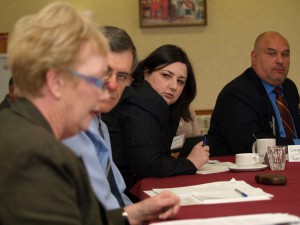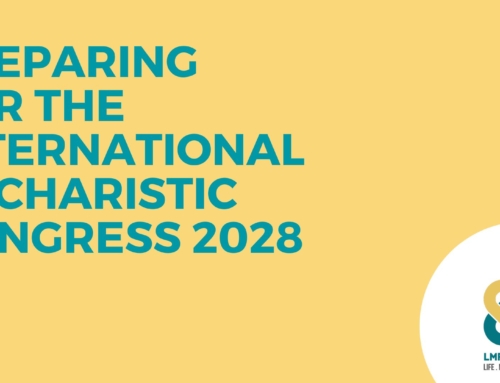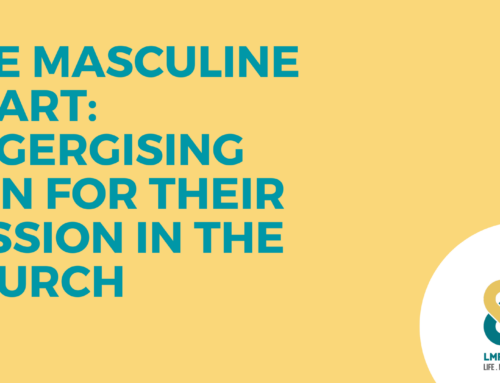Adrienne Connaghan explores the issues faced by the Marriage Tribunal when couples present for an annulment.
I am speaking from my exp erience as a Judge of the Regional Tribunal of NSW & ACT and a Case Instructor working in the Tribunal office of the Archdiocese of Sydney. In our work at the Tribunal we are dealing with the result of marriages under stress that have not been able to be resolved. They are marriages that have ended in divorce. We are approached not just by divorced Catholics but also divorced non-Catholics who wish to contract a marriage with a Catholic. They must go through some process that will give them the freedom for a new marriage. The majority of applications are for a formal annulment of the previous marriage.
erience as a Judge of the Regional Tribunal of NSW & ACT and a Case Instructor working in the Tribunal office of the Archdiocese of Sydney. In our work at the Tribunal we are dealing with the result of marriages under stress that have not been able to be resolved. They are marriages that have ended in divorce. We are approached not just by divorced Catholics but also divorced non-Catholics who wish to contract a marriage with a Catholic. They must go through some process that will give them the freedom for a new marriage. The majority of applications are for a formal annulment of the previous marriage.
It is surprising to be confronted by many Catholics who have no understanding of marriage as an indissoluble sacrament for all the baptised, not just for Catholics. We wonder at times about the level of instruction on this aspect in religious education programmes given at Catholic schools. Although the emphasis should be on the positive aspects of marriage and the nature of a marriage relationship, we consider there should also be open discussion with students about marriage breakdown, divorce and annulment.
One concern arising from many of the cases presented at the Tribunal is the superficial approach to marriage on the part of young people. It is akin to a throw away attitude, “if it doesn’t work, then it can be thrown out”. At the first sign of any difficulty they are prepared to walk away from the marriage without any commitment to resolving their differences. We find in these cases that personal needs and expectations have taken priority over the needs of one’s partner or indeed of the partnership. Indeed, we are presented with marriages that have lasted just a year or more and immediately after the divorce one of the parties expects a “rubber stamp” annulment in order to contract a new marriage.
How do we overcome this attitude? Of course good marriage preparation is essential. Sadly however, we find that many Catholic couples have managed to avoid any preparation, with the attitude that they know what they are taking on, or they simply can’t make the time available. There is also an overemphasis on the preparation for the big expensive wedding that takes priority over the real preparation for the marriage itself. It is important for clergy and the agencies that conduct marriage preparation to market the product in a way that makes it more appealing to couples preparing for marriage. A major challenge for us arises in our interaction with parties who are hostile to the process, especially those who have been badly hurt by the breakdown of the marriage and are now faced with the possibility of their former spouse being free to marry another person. We see marriages where one party has worked hard in their effort to save the marriage but has been disappointed by the, perceived, attitude of the marriage counsellor whose focus is more on advising them to end the marriage than to work towards saving it. For that reason it is important for counsellors in Catholic agencies to have a clear understanding of the Catholic theology of marriage, without falling into a modern form of pessimism that people are not able to make lifelong commitments.
On the other hand, we must be realistic in acknowledging that marriages do breakdown. Where it is obvious that this is the case, the parties should be discouraged from feeling guilty or that they have failed as individuals. They need empathy and assistance in coming to terms with their situation. It is in this context that the Catholic Church’s outreach through the Tribunal could be explained. However, it would not be advisable for the counsellor to offer an opinion on whether an annulment would be possible.
It is not always possible to give an individual the answer they are seeking from the Tribunal. The reality is that not every marriage that ends in divorce is null. This is the difficult and most challenging aspect of Tribunal work in our interaction with people whose cases are not successful. We are the legal arm of the Church so we are not able to provide a pastoral solution. In that instance we rely on the local pastor to work with the individuals concerned and in some cases counselling may be suggested.
Although the Tribunal is the legal arm of the Church, we regard our work as pastoral with a positive outcome for so many people. Indeed, the process has a healing effect for many people who have been through a divorce process that offers little if any emotional support and generally affords the parties no opportunity to speak about their marriage and how they feel about the breakdown. Obviously, not all parties find the process healing although we receive positive feedback from many who have also benefited from their personal reflection on their past life. This opportunity for reflection enables many individuals to think seriously about the quality of their new relationship and how they would approach a new marriage.
When a case has a successful outcome we are always concerned that any new marriage has a greater chance of success. Unfortunately most people who approach us already have a marriage planned and resent any suggestion that they should engage in a suitable programme of preparation. In some cases, where we have real concerns about an individual’s capacity for a new marriage, the Judge may impose a requirement of counselling. In that respect, as with the psychologists from whom we request assessments in some nullity cases, we consider it important for the counsellors to have an understanding of and a positive attitude towards the Catholic theology of marriage.
Adrienne Connaghan JCL
1 October 2010
Canon Lawyer, Tribunal Administrator
Tribunal of the Catholic Church
Adrienne is a civil lawyer who has worked with the Tribunal for the Archdiocese of Sydney for 25 years With the support of Cardinal Clancy, she completed a masters degree and licentiate in canon law at St Paul University, Ottawa Canada in 1999. She has been appointed by the Bishops of NSW & ACT as a Judge on their Regional Tribunal for the past ten years and, apart from regular monthly Tribunal sessions, she continues to work in Sydney as a case instructor and administrator of this office.Her contribution at the round table will be drawing on her experience as a Judge and also in the Tribunal’s efforts to implement appropriate preparation and/or counselling for people who enter a new marriage after an annulment.





Thanks for sharing this.I agree.Students must understand and must be discussed to them the nature of marriage breakdown, divorce and annulment.They need to understand those.I’m glad I read your post.I learned a lot.